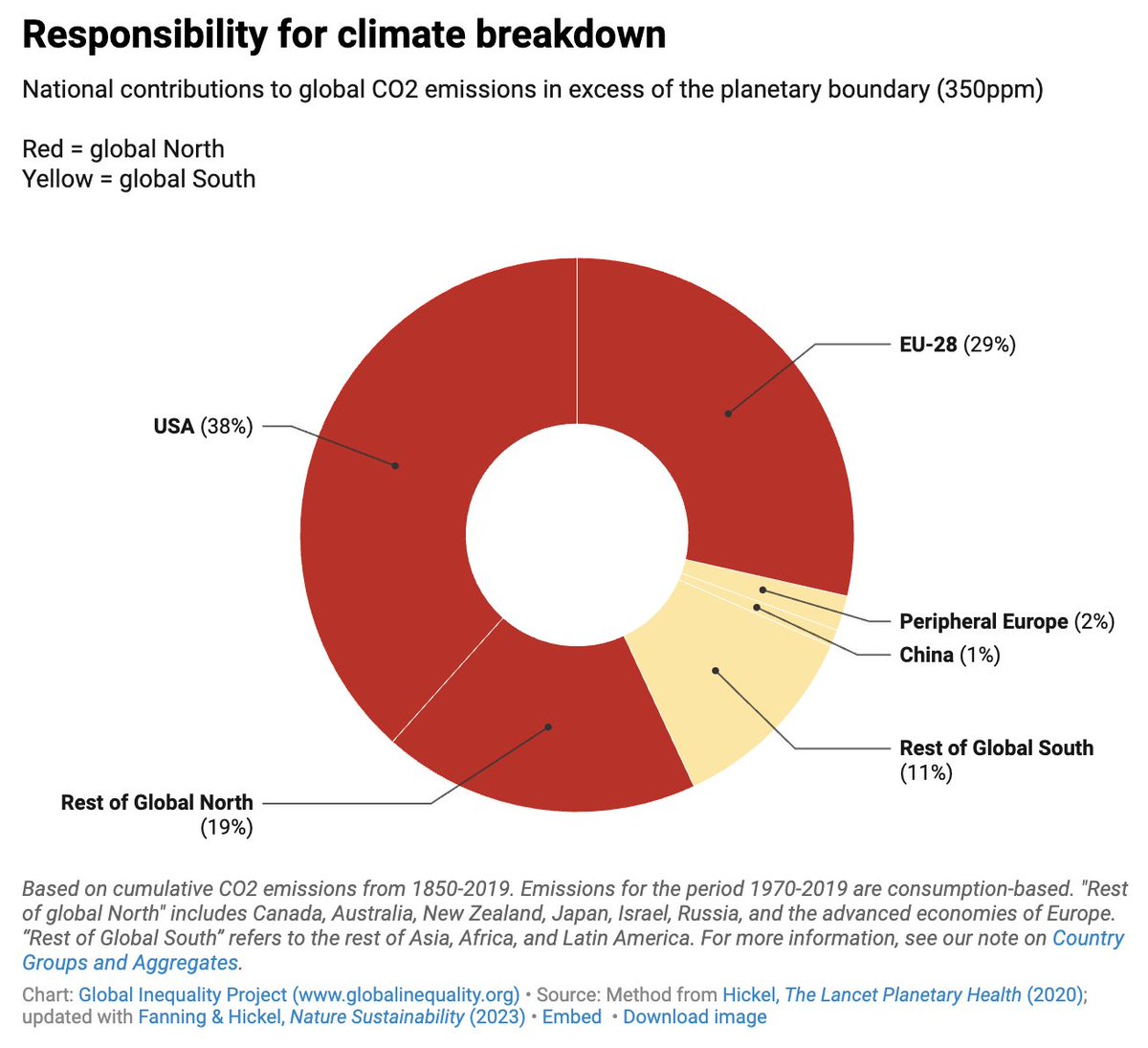I want to take a minute to clarify something important about the degrowth position on climate change and emissions reductions. Here's a short thread that I hope will be helpful:
1. Degrowth *does not* argue that we cannot decouple GDP from emissions. We know this is possible to achieve, and some nations are already doing it to some extent. You can have rising GDP with declining emissions, simply by switching to renewable energy.
2. But that's not the question. The question is much more specific: can high-income nations reduce emissions to zero fast enough to stay in line with the carbon budget for 1.5C or 2C, while pursuing GDP growth at the same time?
3. The answer is no. Why? Because GDP growth means more energy demand (relative to what it would otherwise be with any given energy mix), which makes it harder to cover it all with renewables fast enough to stay within the carbon budget. Here is the data: tandfonline.com/doi/full/10.10…
4. In other words, growth makes our task *much* more difficult than it needs to be. This is why degrowth scholars call for a reduction of total energy use - which is in line with the lead scenario in the IPCC's 2018 report.
5. Now, the easiest way to reduce energy use is to reduce excess resource use. What's useful about this approach is that it also takes pressure off other planetary boundaries (biodiversity, deforestation, etc) - recognizing that climate breakdown is not the only crisis we face.
6. Let me be clear: degrowth does *not* call for energy use to be reduced to zero, as some buffoons have tried to claim. That would be ridiculous. Rather, the goal is to reduce energy use enough to enable a safe and rapid transition to renewables in line with 1.5C.
7. The good news is we can do this *while improving people's lives*. I lay out how to do this in Chapter 5 of Less is More (too much for a thread!). penguin.co.uk/books/111/1119…
• • •
Missing some Tweet in this thread? You can try to
force a refresh









